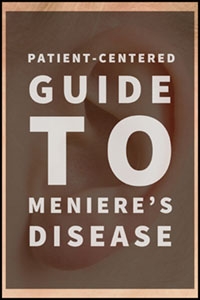Menière’s disease is named after a French neurologist, Prosper Menière, who in 1861 argued that vertigo could be caused by diseases of the inner ear. Menière’s disease causes hearing loss, tinnitus, vertigo, and ear fullness, usually occurring together in discreet episodes. Progressive damage to the inner ear can occur over time, resulting in permanent hearing loss and balance impairments. While the cause of Menière’s disease is currently unknown, histologic studies have consistently shown “endolymphatic hydrops”, which refers to a swelling of a portion of the inner ear called the endolymphatic space. Treatment is aimed at reducing the incidence and severity of vertigo episodes, providing symptomatic relief during attacks, and hearing rehabilitation. Common treatments involve use of a low salt diet, a diuretic (“water pill”), or steroids (which can be given by mouth or directly injected into the ear through the eardrum). If these treatments don’t work, then others are considered, such as betahistine (commonly used in Europe, not commonly used in the US), the Meniett device (after placement of an ear tube, pulses of air pressure are delivered to the ear), and endolymphatic sac surgery. The efficacy of all these treatment options is controversial, however they are all considered “non-ablative”, meaning that they don’t cause damage to the ear. Ablative therapies, such as gentamicin injection into the ear, labyrinthectomy (surgical ablation of the inner ear), or vestibular nerve section (surgical division of the balance nerve) are all very effective at reducing vertigo, but they carry risks to hearing and to the balance system. By damaging the remaining ear function they can cause oscillopsia - the sense of the world bobbing or jumping with head movement. Vestibular physical therapy is often very helpful in reducing imbalance after these treatments. We believe in a comprehensive and stepwise approach to managing Menière’s disease, with an emphasis on rehabilitation and symptomatic relief from vertigo.
For further information, we highly recommend reading our Patient-Centered Guide to Meniere’s Disease (pdf). Please click on the book to learn more.

This guide, which was written by Dr. Jeffrey Sharon and Laura Kirk, PA, and is a comprehensive evidenced-based review designed to help patients figure out a treatment plan for Meniere’s disease.
